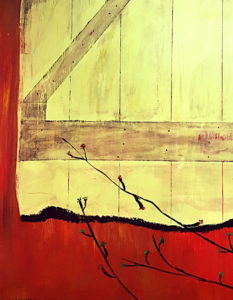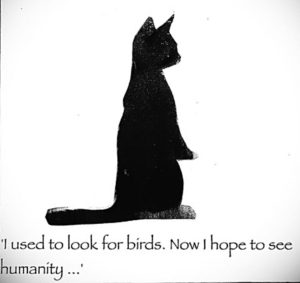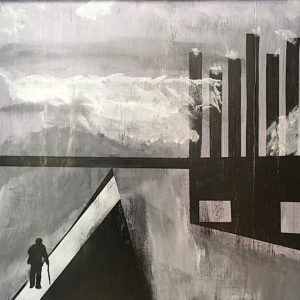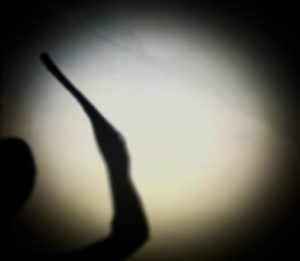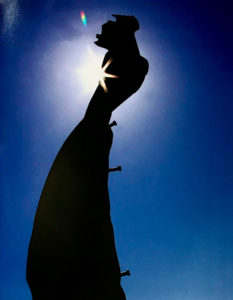
Twin Towers steel at Haverstraw Bay Park, Rockland County, N.Y./gunther photo
September 11, 2021
By Arthur H. Gunther III
thecolumnrule.com
ahgunther@yahoo.com
There is rhythm to our lives, and when it is seriously interrupted, the beat changes forever. And so it was with September 11, 2001.
When 9/11 hit in terroristic horror 20 years ago, I was at the former Rockland Journal-News building in West Nyack, N.Y., just 20 miles from the World Trade Center. As Editorial Page Editor, I had been at my desk since 4 a.m., getting advance pages and copy ready. My day, like any of us then, quickly changed. So did thousands of lives, forever.
The newspaper, as all media, scrambled at 8:45 a.m., even as we shook our heads and kept glancing at the TV images of the Twin Towers ablaze, the tragedy at the Pentagon, the smoking field in Pennsylvania when United Flight 93 crashed after courageous passengers diverted the plane from its D.C. target.
Later that Tuesday, there would be much crying in Rockland County over the loss of area civilians, New York City firefighters and NYPD and Port Authority police officers who were among the dead in the attacks.
About 3,000 individuals of all race and creed, economic and immigrant background and political persuasion were killed in New York, Virginia and Pennsylvania.
Funerals after funerals followed, many for those whose bodies could not be found, and they continue today for the 9/11 responders who developed cancer from building debris.
Communities noted hometown heroes like Welles Remy Crowther, an equity trader and “The Man in the Red Bandana,” who selflessly rescued people in the Twin Towers and died as the Upper Nyack, N.Y., volunteer firefighter he proudly was.
Area municipalities now have memorials and annual observances.
The War on Terror began, and the U.S. became another of the countries which have invaded Afghanistan over the centuries, America hoping to rout evil but finding that quest illusive as we now see in the latest failure in Afghanistan.
Trillions have been spent on the battle against terrorism, not all of it accounted for. Sadly, some have profited either financially or by using this long moment of national, human tragedy to push the prejudice of painting all of one kind with a single brush.
Few commentators have noted that hatred helped bring on 9/11, and that such crop is fertilized if democracies lose their moral compass and encourage citizen neglect elsewhere by supporting dictators when that is convenient; if countries do not speak out for decency and act according to their stated creed. Hate grows then, with the hungry easily persuaded through false promise.
At my old newspaper on that fateful day, we did what we were trained to do – present the who, what, when, where, how, why of the terrorist attacks. We wrote the stories, including the sad but uplifting human reports, presented graphic images and offered commentary.
The Journal-News, and much media, had done this before, of course, covering world wars, natural disasters, death and destruction. That is the beat of information delivery.
What we in the newsroom of my time did not expect was that our heartbeats would change, our rhythm would be different after Tuesday, September 11, 2001. The newsroom of December 7, 1941, had its own blips on the oscilloscope, and now we understood, too, about the horror of sudden attack on a nation but also the reaffirming heroism of so many of its people.
The writer is a retired newspaperman. This essay is based on an earlier report.
– 30-

